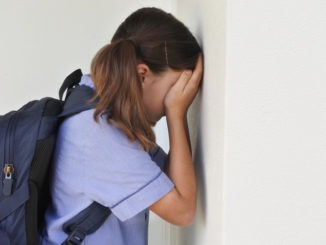
Ofsted has today published a series of reports looking at how the pandemic continues to impact on children and students’ learning and personal development, and the approaches education providers are using to help them catch up
The three reports, which follow on from Ofsted’s autumn 2020 series of COVID-19-themed briefings, look at the findings of 214 routine inspections, from early years through to post-16 education, carried out this term.
Schools
Despite the disruption to their education, inspectors found that many schools are effectively helping children recover from missed learning.
Catch-up strategies include regular, informal assessments; identifying pupils who need additional, one-to-one support; prioritising practical work that wasn’t possible via remote learning; and recapping on the previous year’s curriculum to cover what had been missed. Some schools have also extended their hours to offer after-school, before school, or Saturday sessions for those who needed extra support.
However, despite positive progress, it is clear from Ofsted’s inspections that low attendance remains a stubborn concern. Schools report that much of the absence is for reasons related to COVID-19, including:
- pupils testing positive for COVID-19
- COVID-19-related anxiety among both parents and pupils
- poorer mental health among pupils as a result of the pandemic
- parents rescheduling or rearranging term-time holidays
- children having low resilience due to setbacks or illness
Some schools also reported they had more COVID-19-related absences among disadvantaged pupils, those with special educational needs and/or disabilities (SEND), and specific year groups, for example, Year 8, Year 11 and sixth form.
Repeated lockdowns have particularly affected the newest intake of pupils, who are arriving at school with lower starting points compared with intakes from previous years. School leaders told inspectors that these pupils struggle with their behaviour and attitudes to learning, and take longer than usual to settle in with school routines.
Early years
Despite most early years provision remaining open since June 2020, many childcare providers reported that young children are behind with their communication, language and social skills, as well as their physical development. This was particularly true for children born during the pandemic, or who had spent most of their lives in it, which staff attributed to their lack of opportunity to socialise with other children.
To bridge gaps in learning and development, many child carers told inspectors that they are focusing on developing children’s communication and language skills; providing more opportunities for children to interact with each other to build on their social and emotional skills; and helping their physical development – particularly for those who did not have access to outdoor space during lockdowns – by adapting their outside play areas.
Ofsted chief inspector, Amanda Spielman said: “The pandemic is still with us, and children’s education is still being disrupted. But it’s clear that many school leaders and staff have responded to these challenges with tenacity, and demonstrated creativity in how they have supported children and learners’ education and personal development.
“Children have missed out so much already. And some pupils remain persistently absent from school for a variety of reasons. So, as we face further turbulence, we must do all we can to make sure children are able to continue learning in their classrooms.”




Be the first to comment